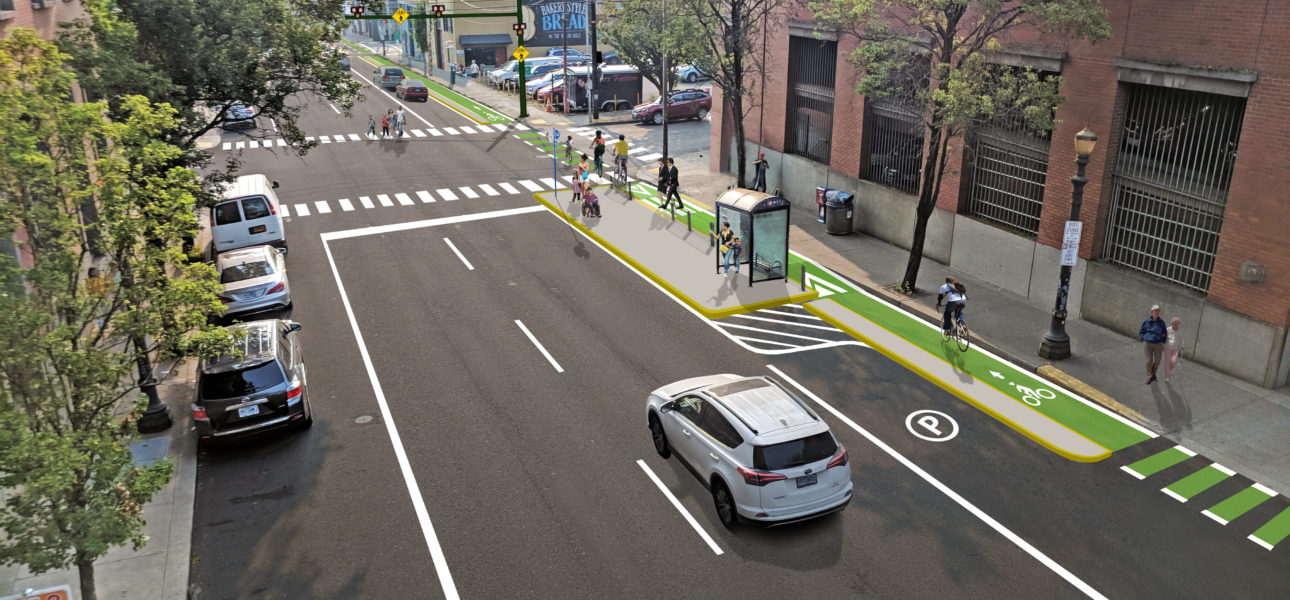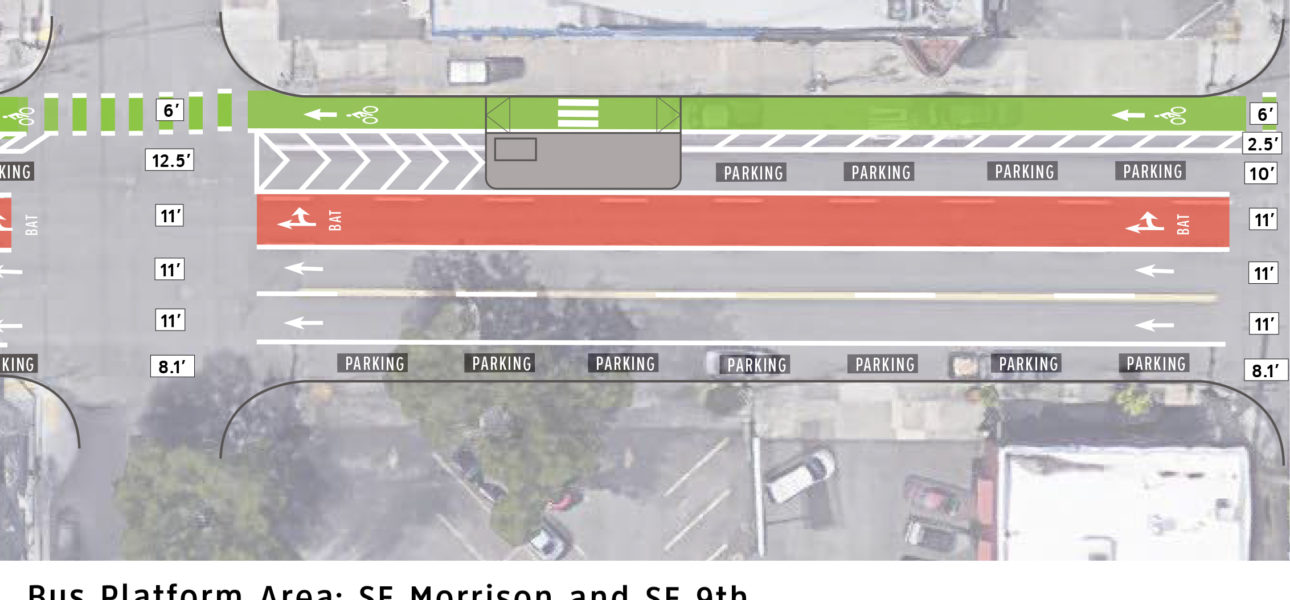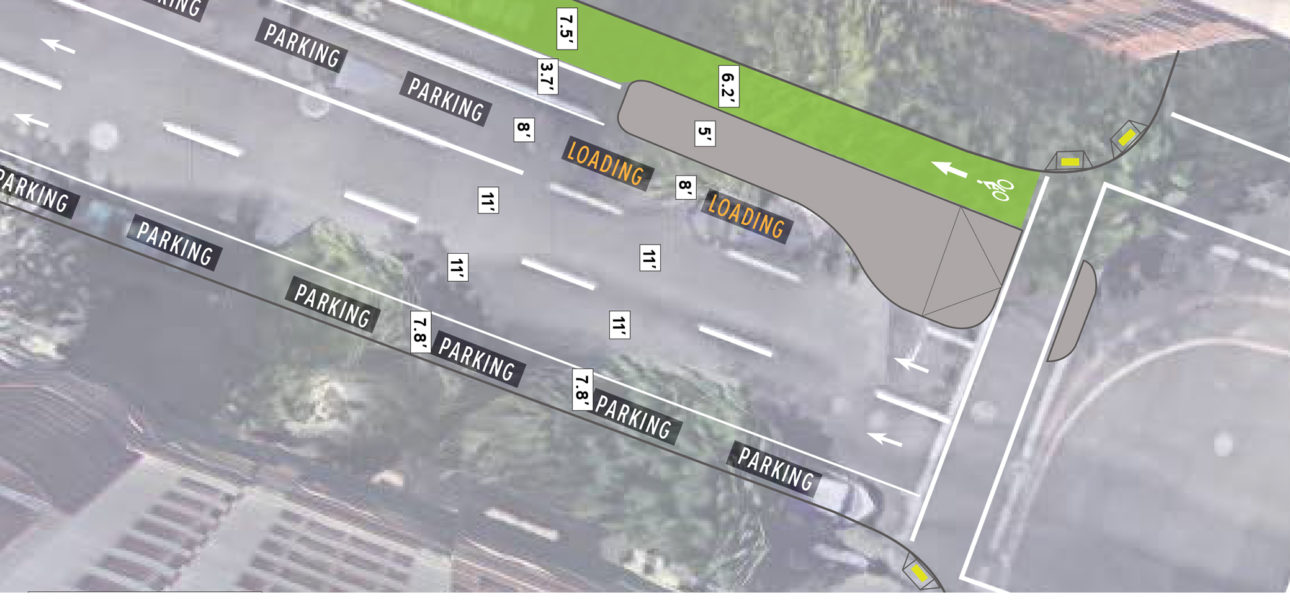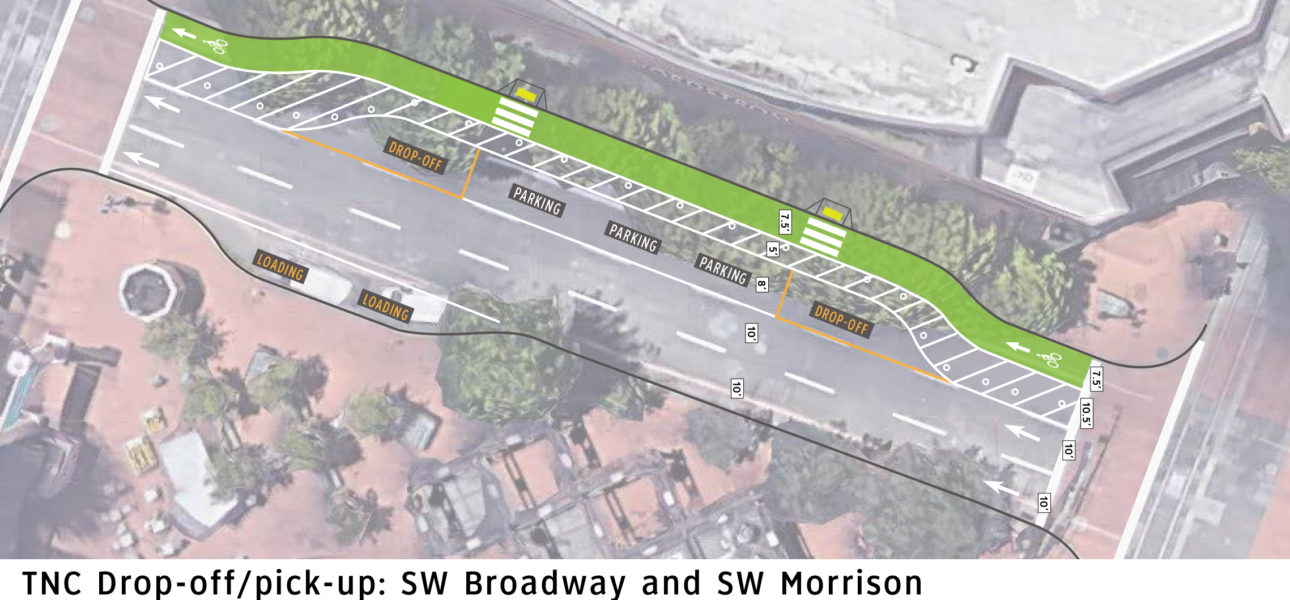Alta’s curbside management study investigated ways to balance curbside activities such as protected bikeways, pedestrian improvements, transportation network company and rideshare pick-up and drop-off, freight loading, and transit stops. The design concepts respond to shifting demands on city streets, sidewalks, and curbs by prioritizing uses, providing more seamless transitions between modes, and accommodating a variety of activities within the limited right-of-way.
Curbside management is critical to the success of Portland’s investment in protected bikeways and pedestrian safety improvements throughout its central city. These improvements are a priority of the 2035 Central City Plan to accommodate the goal of significant growth while reducing drive alone trips. As part of a broader investment strategy, Alta studied how the City could balance the needs of competing curbside activities. Alta chose four specific locations throughout downtown where transportation network company and rideshare pick-up and drop-off, freight unloading, and transit activities could create conflict with protected bikeways and pedestrian improvements. The design concepts helped prioritize uses and show how to accommodate a variety of activities within the limited right-of-way. Specific design solutions, such as floating bus islands, pedestrian medians, bus priority traffic lanes, and strategically locating drop-off and parking spaces, can improve movement and access for all users.





